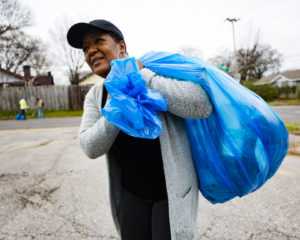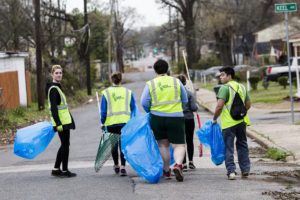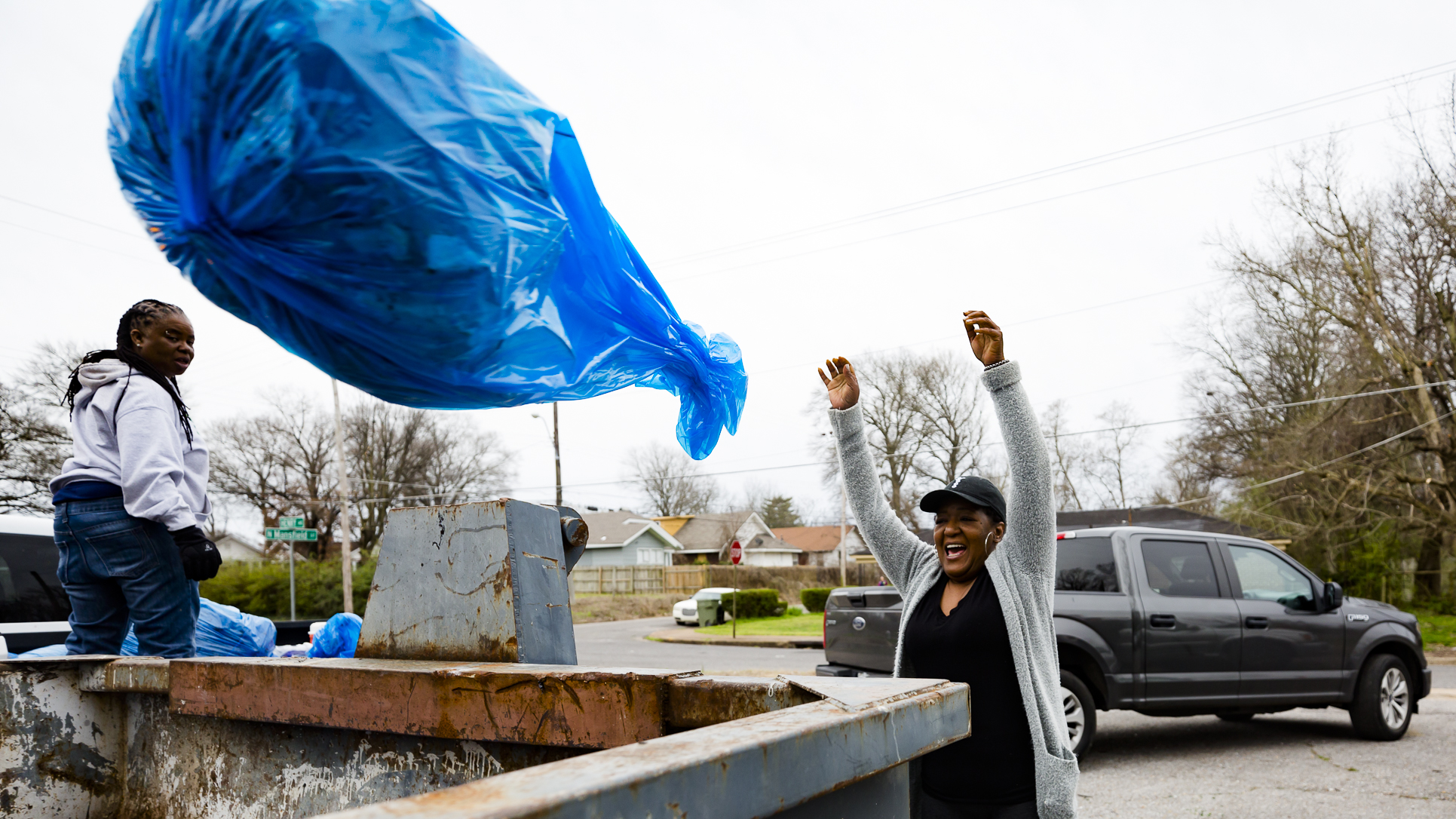Lifelong commitment and community partnerships are hallmarks of the Klondike Smokey City CDC
By Manda Gibson

Quincey Morris has lived in North Memphis’s Klondike neighborhood for virtually her whole life. First on Garland, then Claybrook, and later on Speed Street. As a young child, she attended the Little Angels Day Care Center on Vollintine, and then she sent her own children; now her granddaughter goes there. Many of the neighborhood’s homeowners have lived in Klondike for more than 60 years. In some ways, the neighborhood remains as it was in Morris’s childhood.
But in other ways, says Morris, it has changed.
“When I was growing up, we had lawyers, doctors, police officers, school teachers, ministers all living in the neighborhood,” she said. “We had businesses, hardware stores, pharmacies, a lot of neighborhood grocery stores. It was a vibrant neighborhood.”
Klondike was home to people who got things done. “We were known for political activists,” Morris said.
Morris’s mother was active in the community, and Morris followed in her footsteps, joining Klondike’s neighborhood association. Then she went to classes to learn how to develop the association into a community development corporation (CDC). In 1996 that CDC was established.
But, somewhere along the way, the neighborhood began to decline, Morris says. And, because it was declining, it tended to miss out on resources.
“We noticed how the city would invest in Uptown, skip over Klondike, and invest in VECA [Vollintine Evergreen Community Association] and other neighborhoods,” she said.
In 2000 Klondike CDC went to meet with city council representatives to see why their neighborhood was being under-resourced.
The council members proposed a deal: If Klondike CDC would merge with nearby Smokey City’s neighborhood organization, they would build a resource center for the two neighborhoods to share. (The building the Klondike CDC occupied at the time was in such poor condition that you could see the ground through the floor.) So the Klondike Smokey City CDC was born.
Today the CDC is working to clean up, stabilize, and develop the Klondike and Smokey City neighborhoods, two of the oldest African American communities in North Memphis. A primary way they hope to do that is through 150 properties that the county recently transferred to the CDC.
“Our goal is to stabilize our community and maintain these 150 parcels and eventually develop them,” Morris said.
The CDC has hosted three meetings with community members whose dreams for the properties include community gardens, basketball courts, a meditation space, and safe places for children to play.
“When I was growing up, we had these spaces in our community,” she said. “We had vacant lots that we could play baseball in.”
The CDC has a host of other challenges its seeking to address too.
Most of the neighborhood’s homeowners are senior citizens, some of whom have trouble maintaining their properties. Morris herself was among them.
“My house came apart,” she said.
And, when it did, insurance did nothing to help repair it. Soon her house was demolished and she moved downtown to live next door to her daughter. But she comes to work in her old neighborhood every day.
Morris and those who work with her understand that their challenges are too large to face alone. They’re in partnership with neighborhood groups, like local churches, a mosque, and schools. But they partner with organizations in the greater Memphis community too—including The Works, Inc., CDC out of South Memphis, Neighborhood Preservation, Inc., and Serve901—each bringing what they do best to the table.
“I feel strongly about our relationships because they have helped us build capacity to do some of the things that need to be done in our neighborhood,” said Morris. “They have the same compassion that we have for our community and for our neighbors.”
Those partnerships were on full display one gray March morning on Mansfield Street. Once home to Tom Lee—a Memphis hero who saved 32 people from the Mississippi River in 1925—the street now includes more than its fair share of overgrowth and litter; one lot in particular has become a dumping spot for people from outside the community.
So on that day, Klondike Smokey City CDC, The Works CDC, Serve901, Clean Memphis, and neighborhood residents all came together to give the streets’ residents a boost.
“We’re cleaning up today, and we’ll clean up almost every other day,” said Morris.


Roshun Austin, executive director of The Works, walked along, picking up trash with college students who were in town for the week through Serve901. A Clean Memphis truck provided volunteers with gloves, bags, and tools.
Her organization started partnering with the Klondike Smokey City CDC several years ago when Austin became aware of the good work the CDC had been doing steadily for years. She calls Morris one of her heroes, and she’s worked alongside Morris to elevate the work of the Klondike Smokey City CDC.
“Part of our work is giving voice to the people who feel not so important and who are most vulnerable and saying, ‘You may be vulnerable and under-resourced, but let’s gain some access to some power. Your voices are very important,’” Austin said.
Austin acknowledges that there is something of a turf war between South Memphis and North Memphis, but she refuses to be part of it.
“With our partnerships, we’re stronger together,” she said. “And I think groups need to realize that. It doesn’t make me less because you’re more. We’re all here together. Let’s hold each other up.”


Jeff Riddle, director of Serve901, coordinated the group of students from Bellarmine University in Louisville, Kentucky, who were spending their day on Mansfield Street.
The university had asked Serve901 to plan its students a trip based around issues of affordable housing, community development, and gentrification. The students studied those topics and Memphis history before arriving. While in Memphis, they saw the work of various CDCs and listened to community members tell their stories.
“Ideally, the people we’re hosting are inspired by some of those stories and consider how they engage communities in their own futures,” Riddle said.
Serve901 works with its partner organizations to plan service activities that will be both meaningful to visiting students and genuinely helpful to the Memphis groups they’re serving.
“We’re big cheerleaders of the Quincey Morrises and the CDCs in the city,” said Riddle. “I see it as an opportunity to serve CDCs that are already doing the work. The people who are the true champs are the ones who are day in and day out caring for their communities.”
Morris is one of those “true champs.” She has spent her whole life caring for her community and believes that, eventually, that work will pay off. She envisions her neighborhood drug-free, with jobs and training available to its residents.
“I can see a livable, walkable community—a community where people can raise their children safely,” she says.
Learn more:

